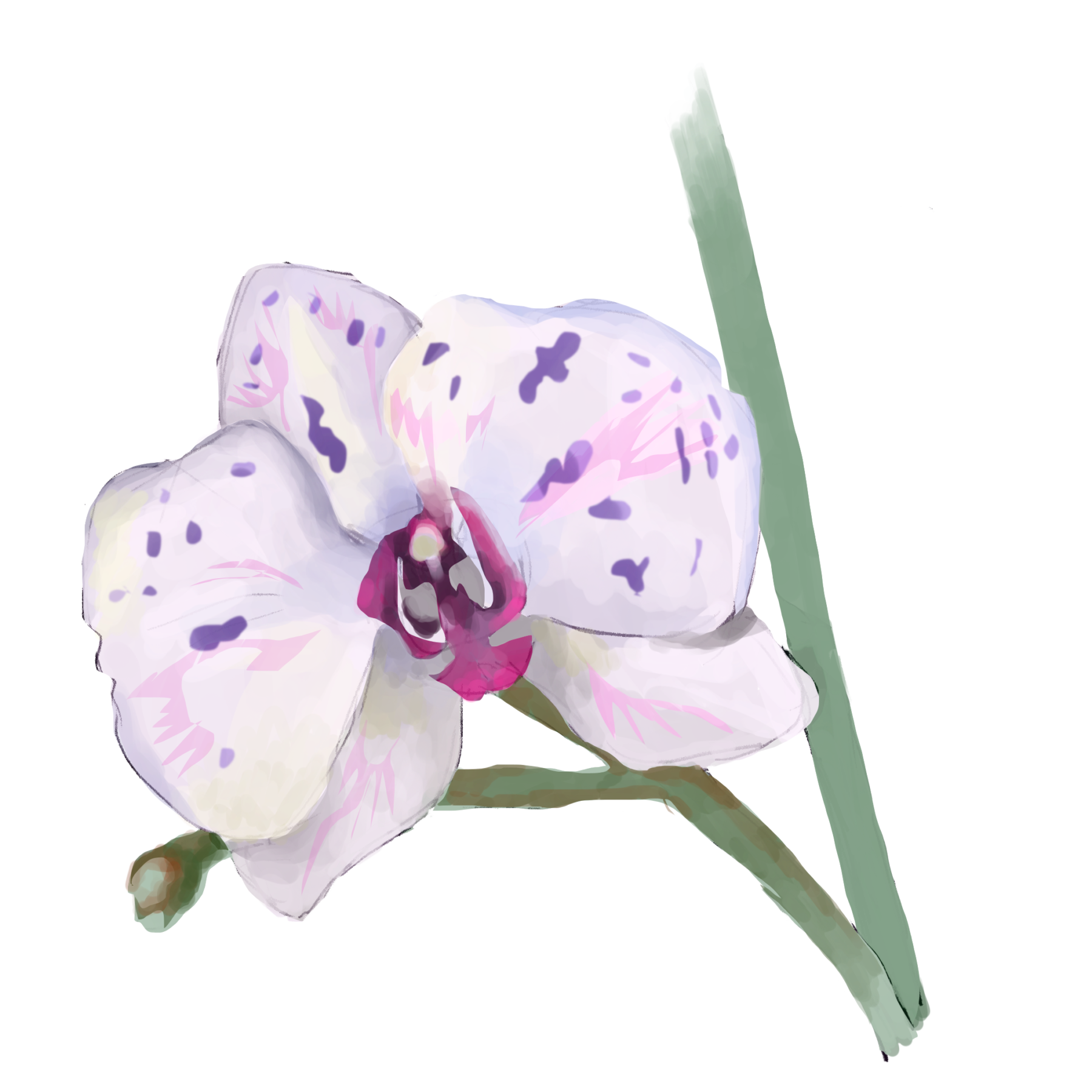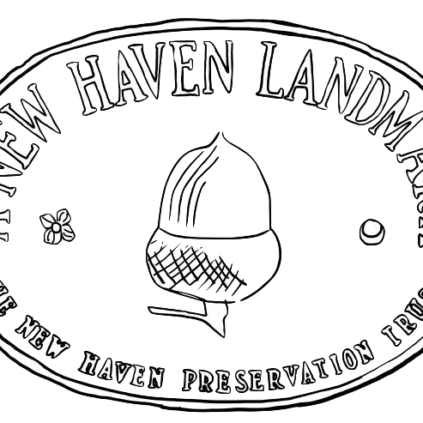Frizz. Everywhere. It’s the first thing I notice—or rather, feel—when I push open the slightly-jammed door to J&L Orchids. My hair balloons around my head. Such is the reality of life in a high-humidity greenhouse, the prime environment for the cultivation of the tropical forest-native orchidaceae family: the orchid flower.
Located in Easton, J&L Orchids is Connecticut’s only registered orchid nursery, according to owner Lucas Carreno. As I enter the shop, Carreno greets me with a wave.
Wandering through the shop with Carreno, it’s hard to believe I’m still in Connecticut. Floral presentations festoon the shop: flowers dangle from the wall, bloom from small rocks hung on racks, and line long wooden shelves. Large glass cases in the entry room display pots for sale. Past the propped-open door to the greenhouse itself, vines, stems, and buds weave together in variegated colors.

Illustration by Angela Huo.
Orchids of all species and shades greet me with open faces. They are friendly. They are familiar. I take a deep breath in, and the intermingling fragrances of soil, wood, and pollen seep past my skin and into my memory.
As a child, I spent many warm weekend mornings kneeling in dewy grass with my dadi—my grandma—as we hunched over small mounds of earth. Though we knew the seeds would only bud maybe twenty percent of the time, it didn’t matter. As we toiled away in the March sun, digging up unhealthy stems yellowing at the edges, we planted new life into her little patch of home. The dry Dallas heat, we eventually realized, was not the ideal climate for growing a plant native to the tropics, but nevertheless we tried.
My dadi didn’t like to pick favorites, but I always thought that, of all the flowers we planted, she loved orchids the best. “It’s like they have little faces,” she would tell me. “Little expressions.”
When my dad was a child, my dadi made the decision for our family to move from Pakistan to the U.S. Back in Pakistan, she loved the ritual of gardening; as a physician, her passion for tending to life extended past the human body and to the open earth. But the roots she found here didn’t lie in the terrestrial soil. Instead, they spread through the contours and crevices of her new home: the Al Markaz restaurant on LBJ Freeway; the knitting section of Michael’s on Midway; the “international spice” rack at Kroger.
“Orchids,” Carreno tells me, “are diasporic plants.” They are the second-largest family of flowering species in the world. While fragile, Carreno adds, orchids are self-sufficient and hardy, deriving energy and water from their own roots and environment, requiring little outside interference.
Carreno’s roots are in physics, not flowers. I ask him how his CalTech degree brought him to this tiny greenhouse in the middle of semi-rural Connecticut.
He chuckles. “Family.”
While the shop was originally opened in the late nineteen-sixties by two chemists passionate about orchid cultivation, Carreno’s family bought J&L in 2017, searching for a change from their urban lifestyle in Washington, D.C.
J&L, Carreno explains, is a pioneer in the realm of not only orchid cultivation, but also hybridization. Within the greenhouse, the shop’s employees breed orchids to maximize presentability, color, and bud development. They intentionally pollinate certain seeds with predicted visual appeal before incubating them in small containers, such as strawberry tubs, to increase humidity and protect them from the cold.
“It’s select breeding,” Carreno explains. “Horticulturally, it’s somewhat like line breeding, where you take a family line and just continue that line.”
I left J&L with a new orchid of my own. It now sits on my nightstand. It’s beginning to bloom; its white face, speckled with violet, expands slowly towards my bed.
“Orchids are a great starter plant,” Carreno reassures me. “They don’t require much care, but they brighten the home.”
I look at my new orchid. It’s smiling up at me.
Zoya Haq is a first-year in Saybrook College.


